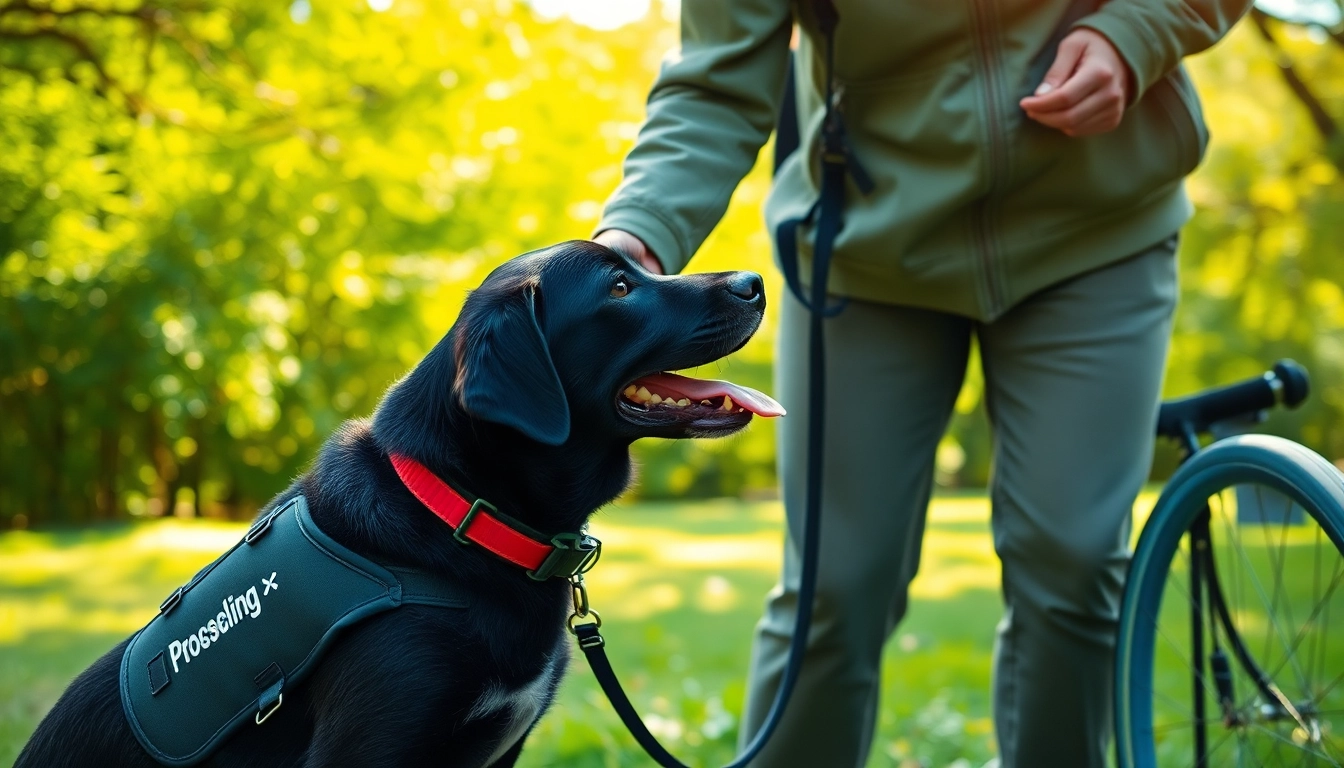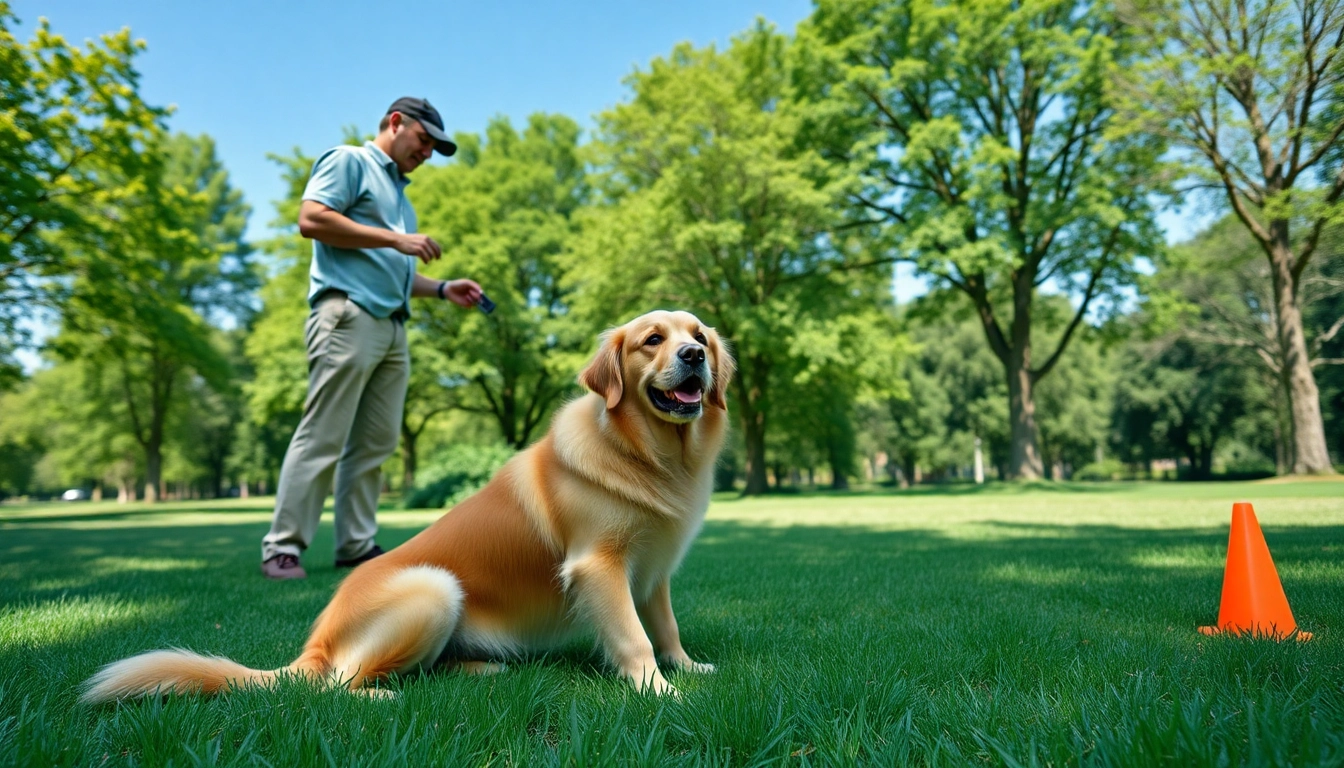
Understanding the Role of Service Dogs
Definition and Classification of Service Dogs
Service dogs are specially trained animals that assist individuals with disabilities by performing tasks that mitigate their specific challenges. Unlike emotional support animals (ESAs) or therapy dogs, service dogs are trained to perform specific functions that directly assist their handlers in managing their disabilities. Under the Americans with Disabilities Act (ADA), a service dog is defined as a dog that is individually trained to do work or perform tasks for people with disabilities. This could include guiding individuals who are blind, alerting those who are deaf, pulling a wheelchair, alerting and protecting a person who is having a seizure, or reminding a person with mental illness to take their medication.
Types of Disabilities Supported by Service Dogs
Service dogs can aid those suffering from a wide range of disabilities. Some categories include:
- Mobility Impairments: Service dogs assist individuals with physical challenges, such as those who need help with balance, retrieving dropped items, or opening doors.
- Visual Impairments: Guide dogs are trained to lead individuals who are blind or visually impaired through obstacles safely.
- Auditory Impairments: Hearing dogs can alert individuals who are deaf or hard of hearing to important sounds, such as alarms, doorbells, or cries for help.
- Psychiatric Conditions: Service dogs can assist individuals with anxiety disorders, PTSD, and other mental health issues by providing comfort and safety, as well as performing specific tasks to help their handlers cope.
- Medical Conditions: Some dogs are trained to detect medical conditions such as seizures or insulin imbalances, alerting their handlers before an episode occurs.
Legal Rights and Regulations Concerning Service Dogs
Under the ADA, individuals with disabilities have the right to be accompanied by their service dogs in public places. This includes restaurants, stores, and public transportation. Service dogs are not pets; they are working animals specifically trained to assist their handlers. While businesses can ask if the dog is a service animal and what tasks it has been trained to perform, they cannot require detailed documentation or ask for the dog’s certification.
Finding the Right Service Dog for You
Assessing Your Specific Needs
Before embarking on the journey to buy a service dog, it’s crucial to assess your unique needs. Consider the specific tasks you require assistance with and how a service dog can facilitate your daily life. For instance, if you struggle with mobility, you may need a larger breed that can assist with physical tasks. Alternatively, if you are looking for help with anxiety or PTSD, a trained emotional support dog might be more suitable.
Different Breeds and Their Suitability for Service Work
Not every dog is cut out to be a service dog. Certain breeds tend to excel due to their temperament, trainability, and physical attributes. Here are some commonly chosen breeds:
- Labrador Retriever: Known for their friendly disposition and intelligence, Labrador Retrievers are a popular choice for service work.
- Golden Retriever: Similar to Labs, these dogs are loyal, intelligent, and eager to please, making them excellent candidates for service roles.
- German Shepherd: Often used in police and military roles, German Shepherds are highly trainable and protective, making them ideal for service tasks.
- Poodle: With their high level of intelligence and adaptability, Poodles can serve as service dogs for various needs.
- Boxer: Boxers are muscular, strong, and protective, making them suitable for certain service tasks, especially for mobility support.
Where to Buy a Service Dog Safely
When considering acquiring a service dog, ensure you approach reputable sources. There are various options for buying a service dog, including:
- Professional Trainer Organizations: Many organizations specialize in training service dogs. They ensure that the dogs are properly trained for specific tasks relevant to various disabilities and often have a solid reputation.
- Breeders: If you prefer to raise a dog from a puppy, look for breeders who focus on temperament and trainability, and verify that they follow best practices for breeding.
- Rescue Organizations: Some rescue organizations train dogs to become service animals. This provides a wonderful opportunity to give a dog in need a second chance while acquiring a companion.
- Personal Trainers: Hiring a specialized trainer to assist in training your own dog can also be a viable option, especially if you have a breed already suited for service work.
The Cost of Acquiring a Service Dog
Understanding Pricing Models
The cost of acquiring a service dog can vary widely based on several factors, including the dog’s breed, the training it has undergone, and the services included in the purchase. Here’s a breakdown of potential pricing:
- Fully Trained Service Dogs: These can range from $15,000 to $30,000, depending on the level of training and specialization.
- Partially Trained Dogs: If you opt for a dog that has some training but requires additional training to adapt to your needs, costs can be between $5,000 and $15,000.
- Self-Training: This option may be less expensive, depending on the training resources and tools you decide to invest in.
Financial Assistance Options for Buying a Service Dog
If the cost of acquiring a service dog feels overwhelming, there are financial assistance options available. Many organizations provide grants or funding to support individuals in obtaining a service dog:
- Nonprofit Organizations: Some charities and nonprofits are specifically dedicated to funding service dogs for individuals with disabilities.
- Fundraising: Many potential service dog owners turn to crowdfunding platforms or community fundraising to help cover costs.
- Insurance: Check with your insurance provider to see if any portion of the cost can be covered, particularly for dogs that assist with medical conditions.
Hidden Costs Beyond Initial Purchase
When considering the overall expense of owning a service dog, it’s essential to account for hidden costs that may arise:
- Ongoing Training: Regular training sessions help maintain the dog’s skills and ensure proper behavior in different situations.
- Medical Care: Like all pets, service dogs require routine veterinary check-ups and emergency care which can add up over time.
- Food and Supplies: Quality food, grooming, and other supplies need to be budgeted for as part of regular care.
- Insurance: Pet liability insurance can be an additional expense to protect yourself financially in case of unforeseen incidents.
Training and Preparing Your Service Dog
Training Options Available for Service Dogs
Training a service dog can be approached in several ways:
- Professional Training Programs: These programs typically offer comprehensive training for the specific tasks your service dog will need to perform.
- Personal Training: You can work with a certified trainer to develop a personalized training plan, tailored to your needs.
- Support Groups: There are often local and online networks where you can find resources and guidance from individuals who have experience training service dogs.
Self-Training vs. Professional Training
When it comes to training your service dog, you may choose between self-training or hiring a professional. Self-training can be rewarding, but it requires a significant commitment of time, patience, and knowledge about canine behavior and training techniques. On the other hand, professional trainers bring expertise and proven methodologies to the table, which can expedite the training process.
Ongoing Support and Development for Service Dogs
Once you’ve successfully trained your service dog, ongoing support is essential. Regular check-ins with trainers and participation in training refreshers can enhance your dog’s skills. A support network, whether through online communities or local groups, can provide valuable insights and companionship as both you and your service dog navigate challenges together.
The Impact of Service Dogs on Quality of Life
Testimonials from Service Dog Owners
The impact of service dogs on quality of life cannot be overstated. Many service dog owners report significant improvements in their daily lives, from increased independence to reduced anxiety. Testimonials highlight the transformative power of these amazing animals:
“Having my service dog has changed my life. I feel more confident and secure knowing I have support during my daily activities.” – Service Dog Owner
Frequently Asked Questions About the Benefits of Service Dogs
Many common questions arise about the benefits of service dogs:
- What specific tasks can a service dog perform? Tasks vary by individual needs but can include anything from guiding visually impaired individuals to alerting handlers about oncoming health issues.
- Can service dogs help with mental health issues? Yes, they can provide comfort, stability, and support to individuals coping with various mental health challenges.
- Are service dogs allowed everywhere? Under the ADA, service dogs are allowed in most public places, but proprietors can enforce certain rules regarding their behavior.
Future Considerations for Service Dog Ownership
As society becomes more aware of the importance of service dogs, legislation and public attitudes continue to evolve. Future service dog owners should stay informed about their rights and responsibilities, foster a supportive community, and continuously advocate for the needs of individuals requiring assistance. The growing recognition of service dogs’ vital role in enhancing the quality of life for many will propel further resources and training programs, ensuring a bright future for these indispensable companions.






